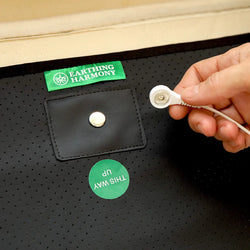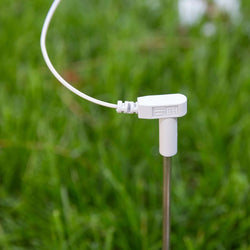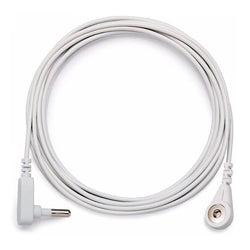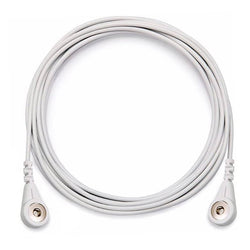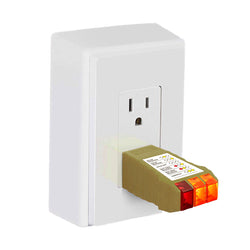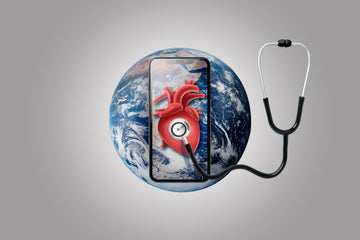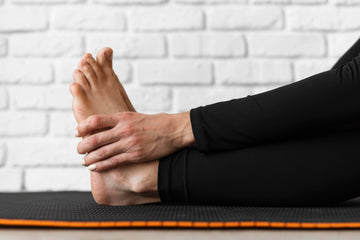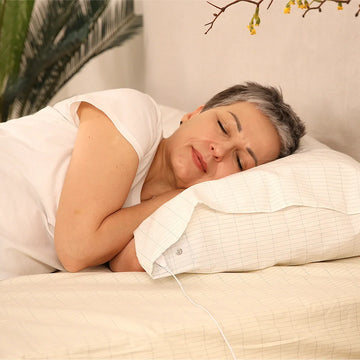Why Safety Matters
Grounding sheets are designed to reconnect your body with the earth while you sleep, offering potential health benefits like improved sleep, reduced inflammation, and reduced stress. Many people also report relief from chronic pain and a greater sense of well being.
But if you or a loved one has a medical implant such as a pacemaker or defibrillator, the natural question arises: are grounding sheets safe with pacemakers? It’s an essential concern, and one that requires careful understanding, a bit of research, and, most importantly, a conversation with your healthcare provider or physician.
In this guide, we’ll explore what makes grounding sheets safe for most people, where caution is needed, and how to ensure you’re using them safely if you have a heart device.
What Are Grounding Sheets?
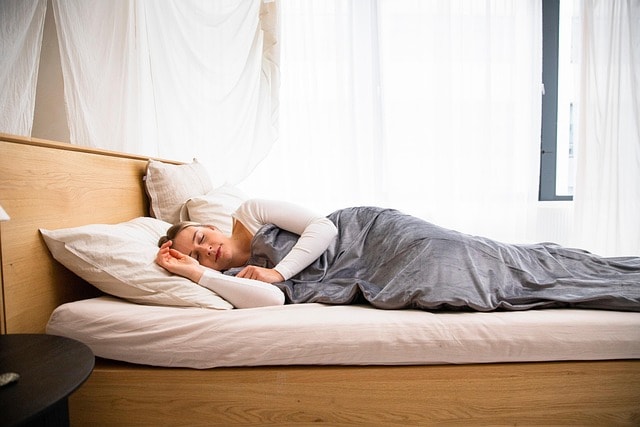
Grounding sheets (sometimes called earthing sheets) are special sheets woven with conductive materials such as silver or carbon. These create a conductive surface that allows your body to stay connected to the earth’s energy while you rest.
The process is simple: by plugging a grounding cord into the ground port of a wall outlet, or attaching it to a grounding rod placed directly in the earth, the sheets replicate the experience of walking barefoot on grass or soil. Just like being outside, the body absorbs beneficial electrons that may improve circulation, balance stress hormones, and calm the nervous system.
For most people, this nightly grounding experience feels comfortable, natural, and deeply restorative. But for patients with electrical medical devices, it’s essential to pause and ask questions about safety.
How Grounding Works with the Body

To understand the possible impact on heart devices, it helps to know how grounding affects the body.
-
The process is passive: your skin makes direct contact with the conductive fibers, and electrons flow into your body, restoring balance.
-
This mimics walking barefoot on grass, where you notice a calming effect over time.
-
The goal is to improve natural rhythms of sleep, stress recovery, and inflammation control.
-
The effects are generally minimal in intensity — they don’t “push” current into the body, but instead allow exchange with the earth.
While this is safe for most people, there’s always the possibility of interference with implanted devices. That’s why consulting a doctor is essential before using grounding sheets if you have a pacemaker or defibrillator.
Safety Concerns: Pacemakers and Grounding Sheets
Pacemakers and defibrillators are finely tuned electronic devices designed to regulate your heartbeat. They rely on precise signals to work properly, and outside electrical influences could, in theory, interfere with their process.
Here are the essential things to understand:
-
Grounding sheets safe? For most people, yes. But for those with a pacemaker, there’s a theoretical risk of interference.
-
Interference potential: The grounding sheet is connected to the earth via a wall outlet or grounding rod, not to a power current. This makes the effects extremely low-level and generally considered safe. Still, caution is wise.
-
Research: At this time, there is limited research on grounding sheets specifically in patients with pacemakers or defibrillators. This means we don’t yet have enough knowledge to say they are universally safe.
-
Consult your physician: Always consult your doctor or healthcare provider before starting. They can check your device model, settings, and whether grounding might interfere with it.
When Not to Use Grounding Sheets
There are certain times when you should avoid using grounding sheets if you have a pacemaker:
-
Immediately after surgery – The healing process after device implantation is a time when the heart is more sensitive. Wait until your physician confirms it’s safe.
-
If you notice discomfort – If you notice strange sensations, discomfort, or unusual device activity while grounded, stop use immediately.
-
If your doctor advises against it – Always follow your doctor’s direction. Even if grounding seems beneficial, your safety comes first.
Potential Health Benefits of Grounding

For those who can use them safely, grounding sheets may offer a variety of potential health benefits:
-
Improved sleep – Many individuals report falling asleep faster and waking more refreshed. Resting while connected to the earth may help balance circadian rhythms.
-
Reduced inflammation – Early research suggests grounding can ease swelling and help the body recover after stress.
-
Reduced stress – The calming effects of grounding may help regulate cortisol, leaving people feeling more at ease.
-
Chronic pain relief – Some patients notice grounding helps reduce lingering pain, offering more comfort during daily life.
-
Overall well being – The cumulative benefits can support better mood, resilience, and a sense of harmony with nature.
Still, if you have a pacemaker or defibrillator, these benefits must be weighed carefully with your doctor to ensure your safety.
Pacemakers, Defibrillators, and Safety Considerations
If you live with a pacemaker or defibrillator, your heart health already depends on advanced medical devices. That makes safety an essential factor when exploring new wellness practices.
-
Minimal risk? For many, the risk of grounding sheets is likely minimal, since they don’t carry electricity, only the earth’s electrons.
-
Interference? Theoretical interference is possible, depending on the device’s sensitivity. Always consult your physician to check your model.
-
Blocked signals? In rare cases, external currents could create blocked or altered readings. This is why a doctor’s guidance is vital.
-
Patients first – Every person is different. What feels safe for one may not be for another.

How to Use Grounding Sheets Safely with a Pacemaker
If your doctor approves, there are ways to use grounding sheets safely:
-
Start slow: Use the sheet for a short time and notice how you feel.
-
Choose the right connection: Whether you use a wall outlet or grounding rod, make sure it’s properly installed and safe.
-
Mat option: Some patients begin with a smaller mat instead of full sheets, to provide gentler exposure.
-
Check often: Use follow-ups with your physician and keep your healthcare provider updated on your experience.
These steps help ensure your grounding experience is both safe and beneficial.

Putting Safety First
So, are grounding sheets safe with a pacemakers? The answer isn’t a simple yes or no. For most people, they are safe and provide beneficial effects like improved sleep, reduced inflammation, and greater well being. But for patients with pacemakers or defibrillators, the idea of grounding must always start with a conversation with your healthcare provider.
If your doctor confirms it’s safe, you may be able to enjoy the essential grounding benefits — from the calming effects of being connected to the earth to the natural restoration that mimics walking barefoot on grass.
Your health and safety are always the priority. With careful consultation, understanding, and awareness, grounding can still play a comfortable role in your journey toward greater balance and well being.
Ready to learn more about grounding and explore safe options? Visit Earthing Harmony’s grounding sheets collection and discover natural ways to stay connected to the earth — always with your doctor’s guidance in mind.

Frequently Asked Questions
1) Is it safe to sleep on a grounding sheet if you have a pacemaker?
For most people, using grounding sheets is considered safe and may provide beneficial effects such as improved sleep, reduced inflammation, and greater well being. However, for those with implanted heart devices like pacemakers or defibrillators, the answer is not as straightforward.
Grounding sheets work by keeping your body connected to the earth through a wall outlet or grounding rod. They do not supply electricity, only allow the earth’s electrons to flow, similar to the natural experience of walking barefoot on grass. While this process is typically gentle, there is always a theoretical possibility of interference with sensitive medical devices.
That’s why it is essential to consult your doctor or healthcare provider before using grounding sheets if you have a pacemaker. They can check your device model, explain any risk, and determine whether grounding can be used safely in your specific case.
2) When not to use grounding sheets?
Although grounding sheets safe practices apply to most people, there are certain times when you should avoid use, especially if you have a pacemaker or defibrillator:
-
Immediately after surgery – During the healing process, your heart and implant site are more sensitive. Using grounding products at this time may not be advisable until cleared by your physician.
-
If your doctor advises against it – Always follow your doctor’s recommendations. Even if grounding may provide potential health benefits, your individual situation may require avoiding it.
-
If you notice unusual sensations – Stop use immediately if you notice palpitations, tingling, or any signs of discomfort that might suggest interference with your device.
By respecting these guidelines, you ensure your grounding practice prioritizes safety.
3) What are four things to be avoided if you have a pacemaker device?
If you live with a pacemaker, there are well-known safety precautions that every patient should follow to reduce risk of interference:
-
Strong magnets – Large speakers, MRI machines, and magnetic clasps can interfere with your pacemaker’s function.
-
Industrial equipment – Welding tools, heavy motors, or machinery with electromagnetic fields may impact your device.
-
Certain medical scans – MRI scans and diathermy treatments can be unsafe unless your doctor confirms your device is compatible.
-
Products not approved by your physician – This includes wellness tools like grounding sheets. While they may offer potential health benefits, they should only be used if your doctor or healthcare provider confirms they will not interfere with your specific pacemaker model.
Always remember, each person and each device is unique. What’s safe for one patient may not be safe for another. That’s why consultation with your doctor is essential.
4) Can a grounding sheet affect your heart?
Grounding sheets don’t send electricity into your body. Instead, they allow the earth’s electrons to flow across the conductive fibers of the sheet, creating a gentle connection with the earth similar to walking barefoot on grass. For most people, this experience feels calming, helps improve sleep, and supports a sense of comfort and well being.
However, in patients with implanted cardiac devices such as pacemakers or defibrillators, there is a theoretical possibility of interference. While the effects are generally considered minimal, no two cases are the same. This is why it is always essential to consult your healthcare provider or doctor before beginning use. They can check your device, explain any potential impact, and help you make an informed decision about using grounding products safely.

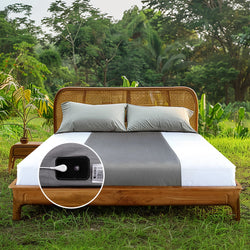




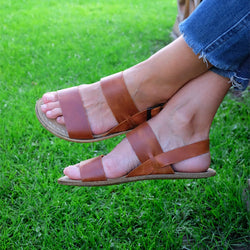
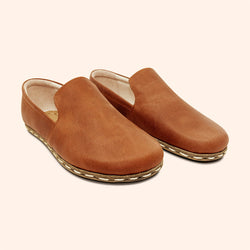 Shoes
Shoes
 Boots
Boots
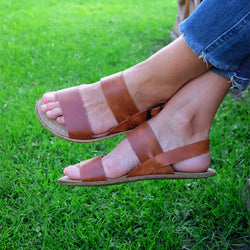 Sandals
Sandals
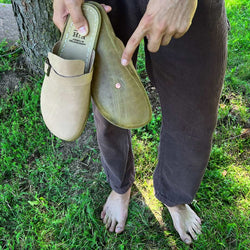
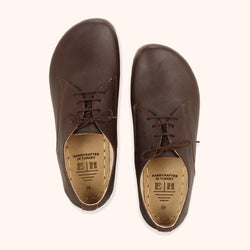 Shoes
Shoes
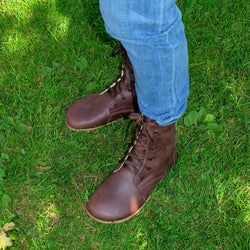 Boots
Boots
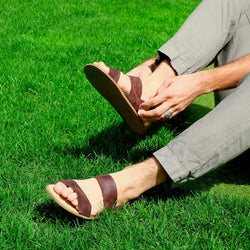 Sandals
Sandals

